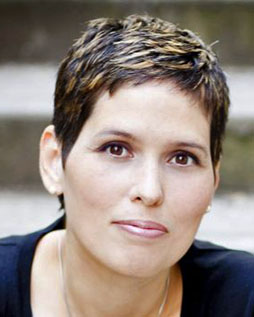
Candice Callison is an Associate Professor in the Graduate School of Journalism and the Institute for Critical Indigenous Studies at the University of British Columbia. Her research and teaching are focused on changes to media practices and platforms, journalism ethics, the role of social movements in public discourse, and understanding how issues related to science and technology become meaningful for diverse publics.
DJRG fellowship accepted, rescheduled because of Covid-19, dates T.B.D.
Candis is the co-author of Reckoning: Journalism’s Limits and Possibilities (Oxford University Press, 2020), which draws on five years of research with journalists in the U.S. and Canada at a variety of news organizations including startups, legacy media, and freelancers. Candis’ first book, How Climate Change Comes to Matter: The Communal Life of Facts (Duke University Press, 2014) used ethnographic methods and a comparative lens to bring together the work of science journalists, scientists, and three distinct social groups that are outside environmental movement and policy frameworks in an American context. Candis was on leave from UBC during the last academic year (2018-19) and at Princeton University where she was the Pathy Distinguished Visitor in Canadian Studies.
In 2019, Candis was inducted into The American Academy of Arts and Sciences, and she is a Pierre Elliot Trudeau Foundation Fellow (2019-21). Candis is Tahltan, an Indigenous people located in Northwestern British Columbia. She is a regular contributor on the podcast, Media Indigena. An alumni of Massachusetts Institute of Technology, Candis holds a Ph.D. in History, Anthropology, and Science, Technology, and Society, and a Master of Science in Comparative Media Studies.
Title and abstract
Systems journalism, Indigenous publics, and climate change
Mobilizing experiences with and narratives about climate change through various media provides important insight for broad global publics about what it means to live with climate change both in the observable present and the predicted future. This talk argues that where, how, and when to locate climate change as a crisis – and deciding whether it’s a crisis and for whom – is not just a question for scientists or economists, but also for those who study media, power, and history. Climate change does not stand outside the varied social contexts from which it has emerged as a problem, nor can climate change be fully addressed without recognizing how deeply enmeshed ecological problems are with colonialism globally. Representing and reporting on diverse Indigenous peoples however can be extremely challenging given that mainstream media narratives have often tended to reproduce stereotypes, ignore Indigenous knowledges, erase the ongoing impacts of colonialism, and/or frame Indigenous people as proxies, victims, or heroes. Drawing on research with Indigenous journalists in North America and journalists throughout the Canadian Arctic, this talk examines how and where journalists locate themselves at the intersection of global systems. Systems journalism (drawing on Callison and Young, 2020) offers a distinctive approach to considering whose voice matters and how journalism might contribute to communal resilience, historical understandings of climatic shifts, and robust civic spaces among global and regional audiences that include Indigenous publics.
Selected publications
- Reckoning Journalism’s Limits and Possibilities, Candis Callison and Mary Lynn Young (2019)
- When gender, colonialism, and technology matter in a journalism startup, Sage Journals, Candis Callison and Mary Lynn Young (2017)
- Climate Change Communication and Indigenous Publics, Climate Science, Candis Callison (2017)